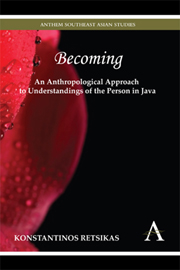Book contents
- Frontmatter
- Contents
- List of Maps and Figures
- Acknowledgements
- Prolegomenon
- Map
- Chapter 1 The Becoming of Place: Moving, Clearing, Inhabiting
- Chapter 2 The Perception of Difference: Embodying, Reversing, Encompassing
- Chapter 3 The Blood of Affinity: Marrying, Procreating, Housing
- Chapter 4 Matters of Scale: Feeding, Praying, Sharing
- Chapter 5 A Pulsating Universe: Annihilating, Enhancing, Magnifying
- Chapter 6 The Marital and the Martial: Gendering, Killing, Oscillating
- Epilogue
- Bibliography
- Index
- Frontmatter
- Contents
- List of Maps and Figures
- Acknowledgements
- Prolegomenon
- Map
- Chapter 1 The Becoming of Place: Moving, Clearing, Inhabiting
- Chapter 2 The Perception of Difference: Embodying, Reversing, Encompassing
- Chapter 3 The Blood of Affinity: Marrying, Procreating, Housing
- Chapter 4 Matters of Scale: Feeding, Praying, Sharing
- Chapter 5 A Pulsating Universe: Annihilating, Enhancing, Magnifying
- Chapter 6 The Marital and the Martial: Gendering, Killing, Oscillating
- Epilogue
- Bibliography
- Index
Summary
Subjects as motion
[T]he best images and parables should speak of time and becoming: they should be a eulogy and a justification of all transitoriness.
(Nietzsche 1969, 111)It pertains to the essence of becoming to move and pull in both directions at once. Good sense affirms that in all things there is a determinable sense of direction; but paradox is the affirmation of both senses or directions at the same time.
(Deleuze 2001, 3)Guntur was a 25-year-old single man I befriended in the late 1990s in the town of Probolinggo, a beautiful and serene coastal small town in the province of East Java. As was the case with most town residents, Guntur was a fluent speaker of both the Javanese and Madurese languages. He had acquired these languages from his father, a retired civil servant who had come to Probolinggo from Surakarta in Central Java some thirty years before to take up a post in the local branch of the Department of Agriculture, and from his mother, a Madurese vegetable seller originally from the market town of Pamekasan in the adjacent island of Madura.
Guntur's parents' life stories are typical of many of the town's inhabitants. Their biographies as well those of many others are marked by migration, the movement away from their places of origin, commonly located in other parts of Java and in Madura, and centre on a conjunction, a coming together that is best conveyed in the emphasis people place on finding a job and a spouse, having children and prospering in the small town of Probolinggo.
- Type
- Chapter
- Information
- Publisher: Anthem PressPrint publication year: 2012



